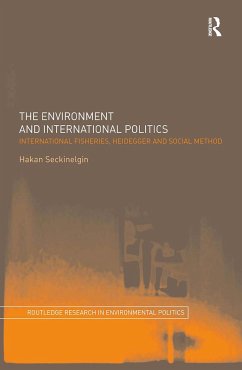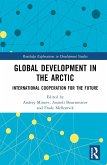This book argues that environmental problems represent a deeper problem in the way the relationship between human beings and nature is conceptualised, a relationship which also grounds the implicit ethical and political concerns of International Relations and its understanding of environmental politics. The twentieth century has witnessed the emergence of environmental issues as among the most important problems in the global political agenda. This book argues that limitations in our ability to understand and address global ecological challenges are related to the dominance of a distinction between humans and nature. This distinction is taken to be the basis of thinking about politics in general and about international relations in particular. As an attempt to explore this constraint on human thought, The Environment and International Politics provides an empirical case study of one major environmental regime created to deal with ongoing problems in global fisheries at the international level: the United Nations Convention on the Law of the Sea (UNCLOS III). This convention, which is generally seen as a success story, is analysed on the basis of its application to the South Pacific region, providing greater understanding of the fundamental dualism between human and nature that provides the groundwork for international environmental politics. Heidegger's philosophy is then discussed as providing a different view on the nature-human relationship - a view that could inform a different kind of political engagement. With its novel approach and erudite scholarship, "The Environment and International Politics" will appeal to students and scholars of philosophy as well as thoseinterested in the interaction between the environmental and political spheres.
Hinweis: Dieser Artikel kann nur an eine deutsche Lieferadresse ausgeliefert werden.
Hinweis: Dieser Artikel kann nur an eine deutsche Lieferadresse ausgeliefert werden.








